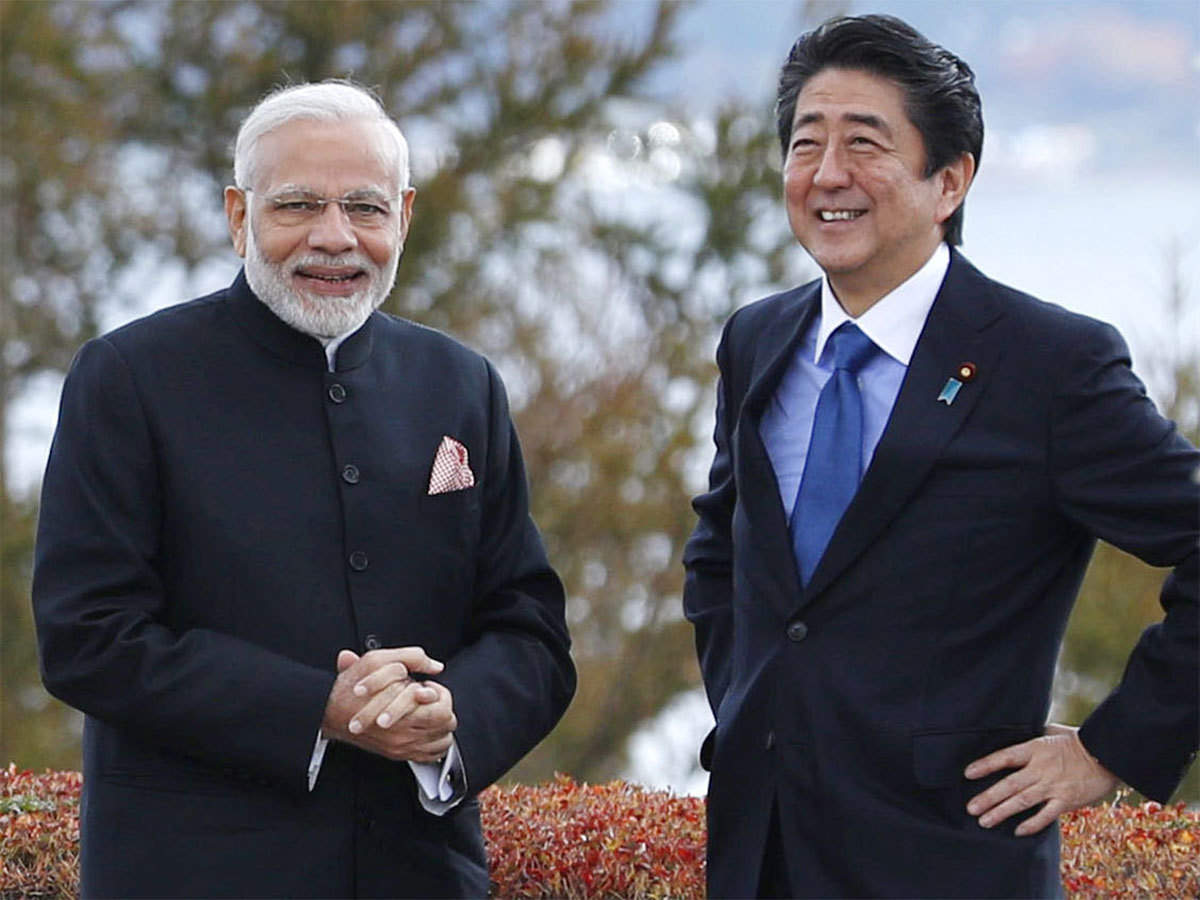If the Indo-Pacific is to be free of expansionism whether creeping or galloping, Tokyo and Delhi need to work ever closer together.
In different ways, Bharat i.e. India, and Nippon i.e. Japan acted as catalysts for the collapse of nearly four centuries of the European colonisation of Asia. Unlike in the case of South America, where such a takeover resulted in the near-extinction of indigenous traditions and cultures, in Asia most of the areas that had been colonised retained significant elements of their traditional teachings and culture. Whether in India, Vietnam, Indonesia or in other countries that had been under the control of the British, French and Dutch respectively, local traditions were kept alive by the population. While many millions perished in each of these and other countries that were occupied by European powers, the almost total extinction of the local population that was a feature of Spanish rule in many of that country’s colonies was avoided. Bharat, as a consequence of the awakening of its people, took the lead in the anti-colonial struggle that was developing in Asia and in parts of Africa, which was why it was not a surprise that freedom for the Indian subcontinent, truncated though it was, was followed by freedom for numerous other countries.
The US under President Truman made the mistake in the 1950s of joining hands with the colonial power in Vietnam rather than with that country’s own peoples, and paid a severe price for that error by finally being forced out of the whole of Vietnam in the 1970s. Of course, that was a different geopolitical era, and today Washington and Hanoi are moving ever closer to each other, as both are to Delhi. Across Asia and in Africa, local populations took heart from the success of others in freeing themselves, and country by country became free, some intensely painfully as a consequence of the stubbornness of their colonial occupiers, countries such as Algeria and Vietnam. The latter was the first country in Asia to defeat the US and its European allies in the field of kinetic combat in the post-World War II era, and for that reason, has a special place in the emotions of the people of India and of other countries in the Global South.
Nippon took a different path, and it must be admitted that in many ways the soldiers and administrators of that country were as unmindful of human rights as were European colonisers. However, it is equally true that the way in which the Japanese army took on and defeated France, Britain and the Netherlands in Asia convinced millions in Asia that European powers were not invincible, and that they could be defeated by an Asian people. Indeed, Nippon had made an early start in that direction through its victory over the Russian fleet at Tsushima in 1905, a defeat that began the death
As a consequence of his aggressive policies, Xi Jinping has placed himself into a situation where a test of military prowess has become almost an inevitability. Thus far, this has occurred through salami slicing, such as by grabbing more and more air and sea space around Taiwan or dotting the South China (or ASEAN) Sea with artificial islands that are as useless in a determined assault by the Quadrilateral alliance as the Maginot Line proved to be for France in 1940. Whether it be the increasing military cooperation between Bharat and the US, or between Delhi and Tokyo, this coming together of target countries is alarming to the war planners in the Central Military Commission in Beijing, given the force multiplier that such alliances can create.
Judging by its misadventure in Ukraine, NATO seems yet to understand the implications of the fact that three of the top five economies of the world are from Asia, and not from anywhere else. Or that it is China and not Russia that needs concentrated attention on. As a result of Tokyo’s policy of reflexively following the lead of Europe and the US where strategic policy is concerned, there remain many in important positions in Tokyo who do not understand that the relationship with India is (after that with the US) the most consequential for Nippon. However, the flow of events is causing a rethink, and as a consequence, the Bharat-Nippon alliance has remained strong even after the murder of Abe.
The US-Japan-India trilateral has given heart to ASEAN, which hitherto was reluctant to openly push back against PRC expansionism. Under Bongbong Marcos, the Philippines in particular has been energetic in seeking to roll back the expansionist tide unleashed by Xi Jinping. Whether it be Vietnam or Indonesia or Malaysia, each country has now become more active in defending their rights, and look to the Bharat-Nippon alliance as an ally in such necessary efforts. If the Indio-Pacific is to be free of expansionism whether creeping or galloping, Tokyo and Delhi need to work ever closer together, the way Shinzo Abe and Narendra Modi worked hard to achieve.

